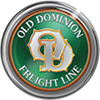The Future of Logistics Automation
Imagine this scenario: you’re in a grocery store, heading towards the meat department. You look around at the various cuts of meat and seafood and then tell the person behind the counter, “I would like two pounds of New York Strip.” They wrap up your purchase, put it on the scale, print off a barcode, and hand it back to you. You then decide to head to the front of the store and check out.
Now imagine a twist to the story. You go to the express isle and the cashier, instead of scanning your meat for the price, says “What is in the package? My scanner is broken.” You could truthfully say it is two pounds of New York Strip, or, you can be dishonest and say it’s one pound of hamburger, pay, and walk out.
This is a good analogy for LTL. We are one of the only industries that allows the customer to tell us what the commodity is, what the weight is, and we accept that information at face value until proven otherwise.
This disconnect is changing the industry, and introducing a concept called the “parcelization” of LTL. Technology is getting less expensive and soon automation will allow transactions to happen just like you experience in the grocery store. Shipment weight and cube will be the driving metrics in how prices are derived, and technology behind the scenes will manage variances, tolerances, and accessorial charges. Shippers could potentially start getting updates in real time with bill corrections versus the standard EDI 210 that goes out now.
The lack of automation in LTL has created an entire sub industry for freight payment and audit that we feel is an unnecessary cost in today’s modern supply chain. In the current state of the LTL market, freight audit and pay is necessary because carriers do make errors. But the point is, everyone wants less errors. That’s the opportunity for automation and technology that’s in front of us. An accurate freight bill is a good thing for both the carrier and shipper.
The grocery store of the future may not even have cashiers. You may simply walk out, and your debit or credit card will be charged. The LTL shipment in the future needs to be more transparent and more automated. Shippers should know that carriers like Old Dominion are working in that direction for the benefit of the entire industry and supply chain.
Contact us by email or simply call 1-800-235-5569 to be connected to an Old Dominion customer service representative.

